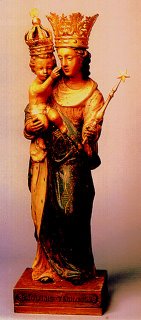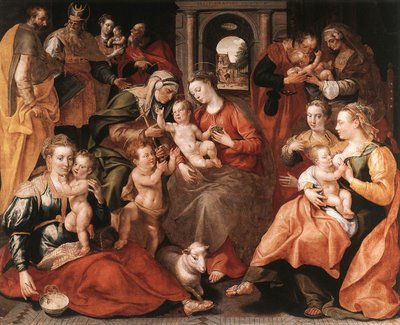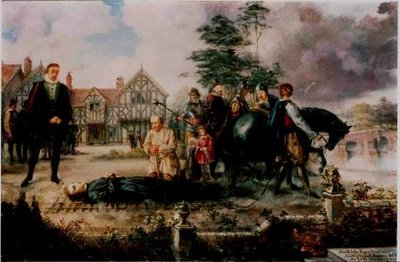+ Blessed EVERARD HANSE, Priest, 1581
"How beautiful are the feet of those that preach the gospel of peace, that bring glad tidings of good things."—ROM. x. 15.

ENGLISH-SCOTTISH- WELSH- IRISH MARTYRS Between 1535 and 1681, over 600 Catholics died for the Catholic Faith and for the primacy of the Roman Pontiff, 54 were beatified in 1888 and nine more in 1895; 247 others had their cause of beatification introduced in 1886, being declared Venerable; the remainder (about 286), though they all died heroically, led more obscure lives. 40 were canonised in 1970.

Posted by
Catholic Conclave
at
12:00 AM
0
comments
![]()
Labels: 1581, Everard Hanse, priest

Posted by
Catholic Conclave
at
12:00 AM
0
comments
![]()
Labels: Our Lady of Aberdeen
Posted by
Catholic Conclave
at
12:00 AM
0
comments
![]()
Labels: 1540, priest, Thomas Abel
Posted by
Catholic Conclave
at
12:00 AM
0
comments
![]()
Labels: 1641, Franciscan, Venerable, William Ward

Posted by
Catholic Conclave
at
12:00 AM
0
comments
![]()
Labels: 1641, Blessed, Cambridge, Franciscan, Oxford, Valladolid, William Ward

Posted by
Catholic Conclave
at
12:00 AM
0
comments
![]()
Labels: 1604, Blessed, Layman, Robert Grissold
Posted by
Catholic Conclave
at
12:00 AM
0
comments
![]()
Labels: 1604, Blessed, Cambridge, John Sugar, Oxford, priest, Valladolid

Posted by
Catholic Conclave
at
12:00 AM
0
comments
![]()
Labels: 1535, Layman, saint, Thomas More
Posted by
Catholic Conclave
at
12:00 AM
0
comments
![]()
Labels: 1589, Blessed, Cambridge, George Nicols, Oxford, priest, Valladolid
Posted by
Catholic Conclave
at
12:00 AM
0
comments
![]()
Labels: 1594, Blessed, Jesuit, John Cornelius

Posted by
Catholic Conclave
at
12:00 AM
2
comments
![]()
Labels: 1616, priest, Thomas Maxfield
Posted by
Catholic Conclave
at
12:00 AM
0
comments
![]()
Labels: Blessed, Monford Scott, saint
Posted by
Catholic Conclave
at
12:00 AM
0
comments
![]()
Labels: 1581, Carthusian, Maurice Chauncey

Posted by
Catholic Conclave
at
12:00 AM
0
comments
![]()
Labels: 1681, Archbishop, Oliver Plunkett
In the persons, places and dates section, the posts are categorised according to name, religious order, date of martydom, place of birth, place of death and other key associations such as the Northern Rising.
Keep scrolling down!
Previously posted material is also being updated. There are a few problems with the titles of earlier posts, which will be corrected soon.
Contact me catholicconclave@gmail.com with comments, information and even corrections if necessary.